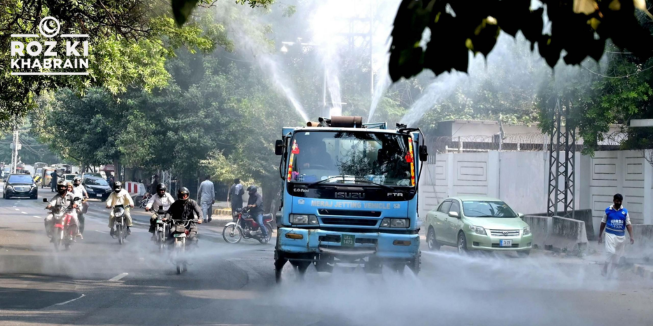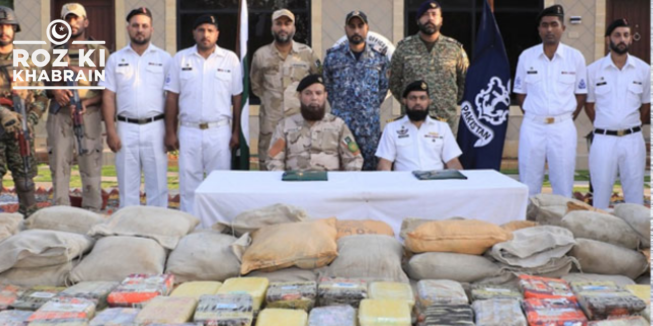Lahore continues to struggle with “hazardous” air quality, maintaining its position as the most polluted city in the world, with an alarming air quality index (AQI) hitting 666 on Tuesday morning.
According to the Swiss air quality monitor IQAir, the concentration of harmful particulate matter (PM2.5), which poses the greatest health risks, surged to 376 around 10 a.m. This level is a staggering 75.2 times higher than the World Health Organization’s (WHO) recommended limits.
While the AQI later fluctuated, dropping to 609 and then to 601, these values remained firmly in the hazardous category.
Punjab Secretary for Environment Protection and Climate Change, Raja Jahangir Anwar, noted that persistent smog-laden air pressure from India has contributed to the situation, with eastern winds moving toward Lahore at four kilometers per hour, complicating efforts to reduce the AQI and smog levels.
It’s worth mentioning that New Delhi, the Indian capital, ranked second among the most polluted cities, with an AQI of 406.
Anwar also highlighted the ongoing increase in Lahore’s AQI levels, urging farmers to avoid crop burning, which could exacerbate the situation. He advised residents to take protective measures, such as wearing masks and keeping gardens and ponds covered.
The thick smog has led to a rapid rise in eye, nose, ear, and throat ailments among residents in Punjab. According to the Punjab Health Department, over 55,000 cases of eye infections were reported in the province from October 21 to 27, with more than 7,000 cases occurring in Lahore alone. Additionally, over 6,000 people reported issues with their nose, ears, and throat, prompting medical experts to recommend increased water intake for those in smog-affected areas.
Following these alarming AQI levels, the provincial environment protection department issued yet another smog alert on Monday, urging citizens to take precautionary measures. Residents were advised to limit unnecessary outdoor activities and to wear masks when they must go out.
In a related move, the department established a Smog War Room at its headquarters, where designated officials will provide daily updates to the Punjab Environmental Protection Agency (EPA) director general and other relevant officers on efforts to combat smog.
Moreover, the department declared “mandatory” leaves for students in Lahore’s special education centers who fall ill due to air pollution from November 1 to January 31, 2025, due to the smog crisis. This decision specifically targets students suffering from cardiac, respiratory, and other health issues.
The alarming levels of air pollution in Lahore have prompted authorities to implement emergency measures, including a one-week closure of primary schools and a work-from-home mandate. In addition to the school closures, the government has advised citizens to ensure that children wear masks and stay indoors, keep doors and windows shut, and avoid unnecessary travel.
A ban on rickshaws and construction in certain areas has also been enforced to help reduce pollution levels, with warnings of permanent closure for factories and construction sites that do not comply with regulations.




